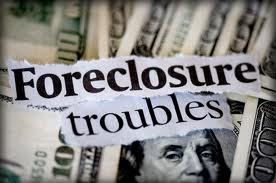
New appraisal rules and distressed markets lead to uncertainty in what a home's fair market value may be.
Recently imposed rules and regulations dictating how lenders choose appraisers are frustrating potential home buyers. It is hard enough to qualify for a loan these days but now prospective home buyers are faced with the daunting task of getting a satisfactory appraisal. Under the new rules, lenders are no longer able to hand-pick the appraisers. Thus, many lenders have started using appraisal management companies that afford them an arm’s length relationship with the appraiser. The appraisal management companies hand out assignments to their participating appraisers on a random basis. More importantly, they get a significant slice of the appraiser’s fee, cutting the amount that actually goes to the on-the-ground appraiser. Consequently, many experienced appraisers have left the industry all together because the lenders are demanding more work from them and paying less. The loss of qualified appraisers, coupled with the fact that today’s market is so volatile and different from anything the industry has ever seen-comparable properties typcially consist of one-third foreclosures, another third short sales and another the final third from conventional sales- results in appraisers having a hard time determining what today’s fair market value is. The real losers, however, are the prospective home buyers who spend thousand of dollars on appraisals only to find out that the bank won’t lend the money.
Read entire article HERE
Tagged as:
Appraisals,
Financing,
Housing

Will US taxpayers be on the hook for more losses?
Fannie Mae and Freddie Mac are reluctant to join in the FHA’s new program designed to assist borrowers whose homes are worth less than they owe on their mortgages largely because US Taxpayers would be on the hook for any losses incurred. Fannie and Freddie have already cost US taxpayers more than $130 billion and has so far resisted the program because it would only increase their losses. The clash between the two federal agencies reflects a continuing debate over how far Fannie Mae and Freddie Mac should go to help the housing market – and at what expense.
Read entire article: http://tiny.cc/grpnd
Tagged as:
Fannie Mae Freddie Mac,
Recession,
Recovery

Will Fannie and Freddie play a role in housing's recovery?
Yesterday, we learned that the Obama administration was pressuring Fannie Mae and Freddie Mac to write down so- called underwater loans that continue to pose a major threat to the U.S. housing market by way of the glut of homeowners believed to be at risk of default should their personal finances or home prices worsen ( http://tiny.cc/rh8kp) . Nearly 23% percent of borrowers are now underwater on their mortgage and the shadow inventory of foreclosed properties will only add downward pressure to prices. Today CNBC reports that the Department of Housing and Urban Development is considering ways to get more investors into the housing market, possibly with the help of Fannie and Freddie. Experts believe that the only way to right the housing market is to get long-term investors to eat up the excess inventory. Currently, Fannie Mae and Freddie Mac both limit the number of investor mortgages. It seems clear in recent days that the Obama Administration is taking issue with the large inventory of homes, which is likely why officials are putting ever more pressure on Fannie and Freddie to write down mortgage principal. It is also evident that current market conditions are not going to lead many private investors to scoop up the inventory unless they have some incentives. Whether it’s principal write-down or investor incentives, the housing market is not going to right itself on its own and something must be done to stop the surplus of inventory from increasing.
Read Entire Article: http://tiny.cc/07i2t

Are banks using deceptive eviction practices?
It is no secret that lenders’ foreclosure practices have been placed under the magnifying glass since the recent revelation that the banks’ use of robosigners called into question the validity of millions of foreclosures throughout the United States. Recent news out of Boston focuses on a ‘host’ of deceptive practices banks are using in order to entice people to vacate their property. Lenders contract local real estate agents or property asset managers to go door to door and tell occupants that they have to leave the house. Many of these agents fail to advise the individuals of their legal rights to remain in the property and offer the occupants a one time take-it -or leave-it ‘cash for keys’ offer, where, in exchange for a small payment, the individuals agree to vacate the property and relinquish all legal rights to remain in the home. Once the eviction documents arrive and the homeowner seeks legal counsel it is often too late because they already signed away their right to contest the eviction. In Boston, local community groups and law students have launched a grassroots effort to prevent lenders from using these defective practices. The groups are going door to door and are holding weekly public meetings in order to inform individuals of their legal right to remain in their home. It appears that lenders are finally taking notice. In the past couple of months banks have paid out hundreds of thousands of dollars and some individuals have even been able to re-purchase their home at current market values with the assistance of non-profit lenders.
Read entire article: http://tiny.cc/j1dpe
Tagged as:
Eviction,
Foreclosure,
Housing

Lenders experience foreclosure woes.
According to mortgage-data provider LPS Applied Analytic, 492 days have elapsed since the average homeowner in foreclosure made a mortgage payment. In short, people are defaulting on their mortgage loans faster than banks are able to effectively carry out the foreclosure process. Homeowner’s that owe considerably more on their mortgage than the fair market value of their home have no incentive to keep making payments. Coupled with today’s news that lenders are allowing these homeowners to stay in the property for 12-16 months before foreclosure is a problem because it makes stiffing the bank an even more attractive option to struggling borrowers.
Read entire article here
Tagged as:
Default,
Eviction,
Foreclosure,
Robosigners

Bank of America and Robosigners
A recent case in New Jersey involving Bank of America ignited the “robosigner” crisis by exposing lenders’ suspect foreclosure practices and called into question the validity of millions of foreclosures throughout the US. As a result, many experts have weighed in as to whether the lenders, by way of securitization and complex trust agreements, ever owned the mortgages in question and, therefore, have the legal standing to foreclose. Regardless of what side of the argument you support, banks will ultimately be able to overcome the “robosigner” crisis and exercise their right to cure all alleged defects under the terms of the trust. Distressed homeowners who were given a glimmer of hope will once again be facing foreclosure and it is clear that there will be no recovery in the availability of credit or jobs in the U.S. economy until the Obama Administration restructures the largest banks. Consider the fact that more than $1 trillion in outstanding second liens have yet to be addressed. That’s enough by itself to make you question the solvency of more than a few banks. What’s more, 11 million mortgages are tied to homes that are worth far less than the amount of debt owed on the property. Unless changes are made, US banks are likely to face another round of crisis in the future. News today (http://tiny.cc/ckboa) reveals that Fannie Mae and Freddie Mac are in talks with Obama administration officials to join fledgling government programs aimed at reducing loan balances of mortgages where borrowers owe more than their homes are worth. What is clear is that the recession is far from over and the introduction of new lender endorsed government programs to correct this mess will be far more valuable than focusing on the lenders’ past mistakes, which are plentiful.
Read entire article: http://tiny.cc/5dd6t
Tagged as:
Robosigners

Recession or Recovery?
Record high foreclosure rates, mortgage rates inching up and a surplus of distressed properties are just some of the factors that will delay a recovery in the housing sector until 2014, experts say. As mortgage rates start to rise, demand for housing will soften and home national home prices are likely to decline another 5-7% in 2011. Making matters worse, however, is the fact that in the next 12 to 15 months, another $300 billion in adjustable rate loans will reset, which will invariably lead to more foreclosures. This glut in housing inventory will undoubtedly drag down the housing market for years to come.
Read entire article: http://tiny.cc/vrl8b
Tagged as:
Recession
I spend many hours each day researching and reading about the latest developments in residential real estate. My intention is to share this information and hopefully create a useful resource for buyers, sellers and real estate professionals.











